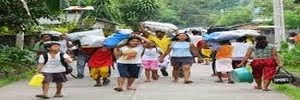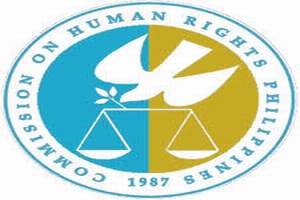links: http://www.dswd.gov.ph/2013/05/communities-key-to-development-soliman/http://www.dswd.gov.ph/2013/05/communities-key-to-development-soliman/
Communities key to development – Soliman
Posted on 02 May 2013.“The communities are key to development”, said Secretary Soliman. She cited how the community-driven development (CDD) approach of Kalahi-CIDSS builds up on the Aquino administration’s thrust of “the people as the bosses.”
The CDD is a poverty alleviation strategy which gives citizens the power and the responsibility to analyze and address local issues that impede their development through participatory decision-making. It is the principal strategy of Kalahi-CIDSS, one of the projects under the DSWD.
Secretary Soliman said that Albay was chosen as one of the two pilot sites for PLGU engagement because its PLGU showed consistent support to the implementation of Kalahi-CIDSS in its constituent municipalities. Furthermore, it has proven its expertise in addressing provincial concerns, including disaster risk management.
While she praised Governor Salceda for his active involvement in Kalahi-CIDSS implementation, she also issued him a challenge. “You have tried [CDD implementation] in either Kalahi-CIDSS or PODER. Let us try this now at the provincial level.”
PODER, or Poder Y Prosperidad de la Comunidad (Empowerment and Development of Communities) is a project also implemented by the Kalahi-CIDSS with funding support from the Agencia Española Cooperacion Internacional para el Desarollo (AECID). It also uses the CDD strategy utilized by Kalahi-CIDSS. It is implemented in the Bicol region, Region III, and CARAGA.
The pilot testing is expected to provide insights on the roles of the PLGU in the implementation of CDD. The information will be used to identify the engagement of the PLGU in the National Community-Driven Development Program (NCDDP), the scaling up of Kalahi-CIDSS.
For his part, Governor Salceda welcomed Secretary Soliman’s challenge, saying that he believes in the systems employed by Kalahi-CIDSS, particularly in its thrust of empowering people. “Ang CDD ang paraan sa pag-solve ng poverty, at ang magsasagot ay ang tao mismo [CDD provides the means to solve poverty, and the ones who will solve poverty are the people themselves].”
He also cited the Kalahi-CIDSS’ system of going directly to the people to ask for their feedback. “I always insist that we follow the format of the Kalahi-CIDSS’ voice and vote,” he said.
He added that it is his desire for everyone to become involved in the development process. “It has been my dream for the barangay residents to go to their barangay captains and say, ‘This is the project that we need’. The barangay captain will then tell his mayor, and then his mayor will go to the governor. In this sense, democracy becomes equality, where the budgetary buttons of the government will be dictated by the people.”
He ended his talk by addressing the Albay mayors. “We have gotten our marching orders. Let us continue our practice of working together.” ###
DSWD Webaite
http://www.dswd.gov.ph/
links:
http://www.dswd.gov.ph/2013/05/communities-key-to-development-soliman/
OTHER HUMAN RIGHTS PROMOTIONS WEBSITES
PROTECTION AND PROMOTION OF HUMAN RIGHTS
----------------------------------------------------------------------------------------------------------
--------------------------------------------------------------------------------
---------------------------------------------------
--------------------------------------------------------------------------------
---------------------------------------------------


























































0 comments:
Post a Comment